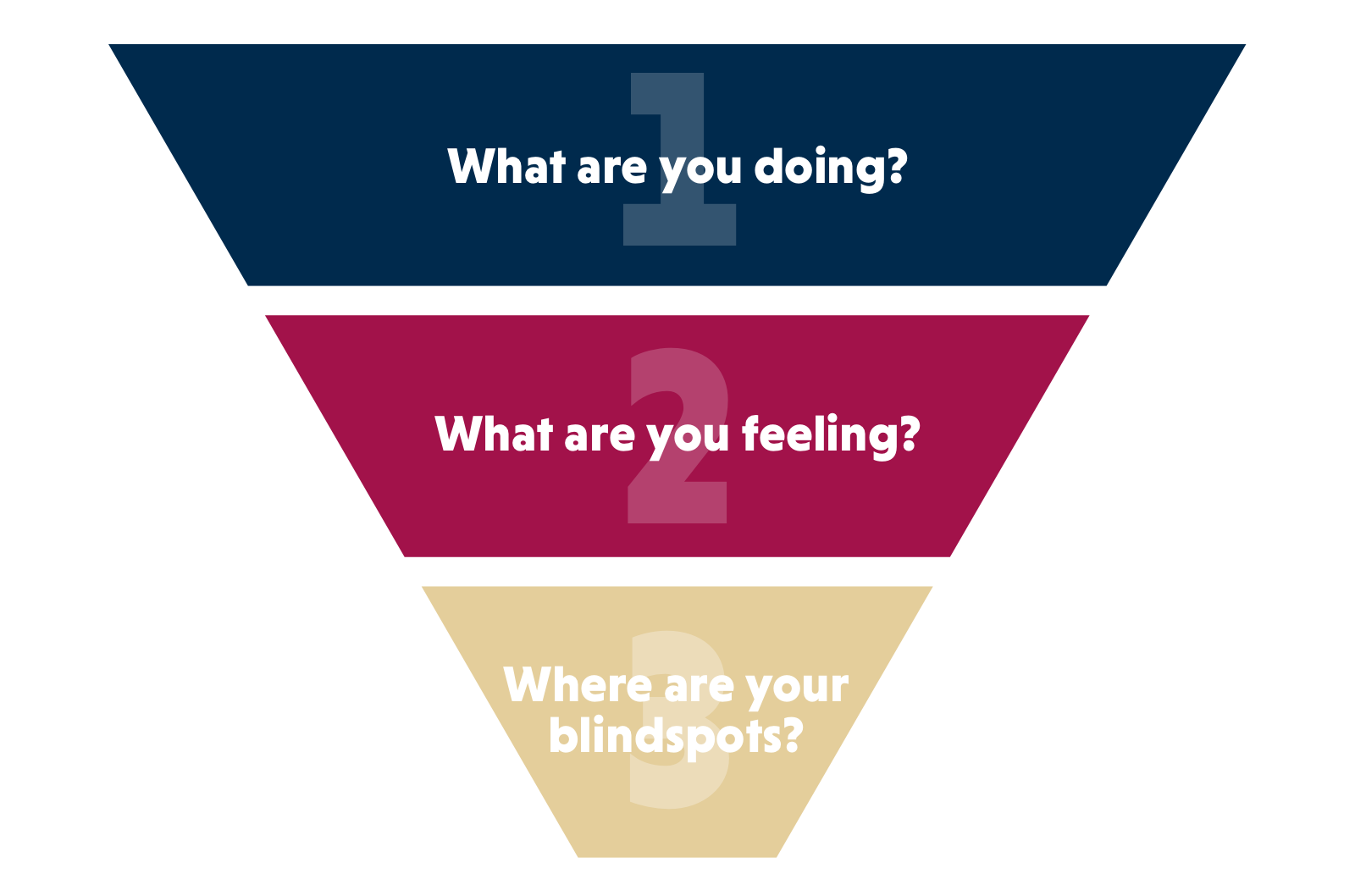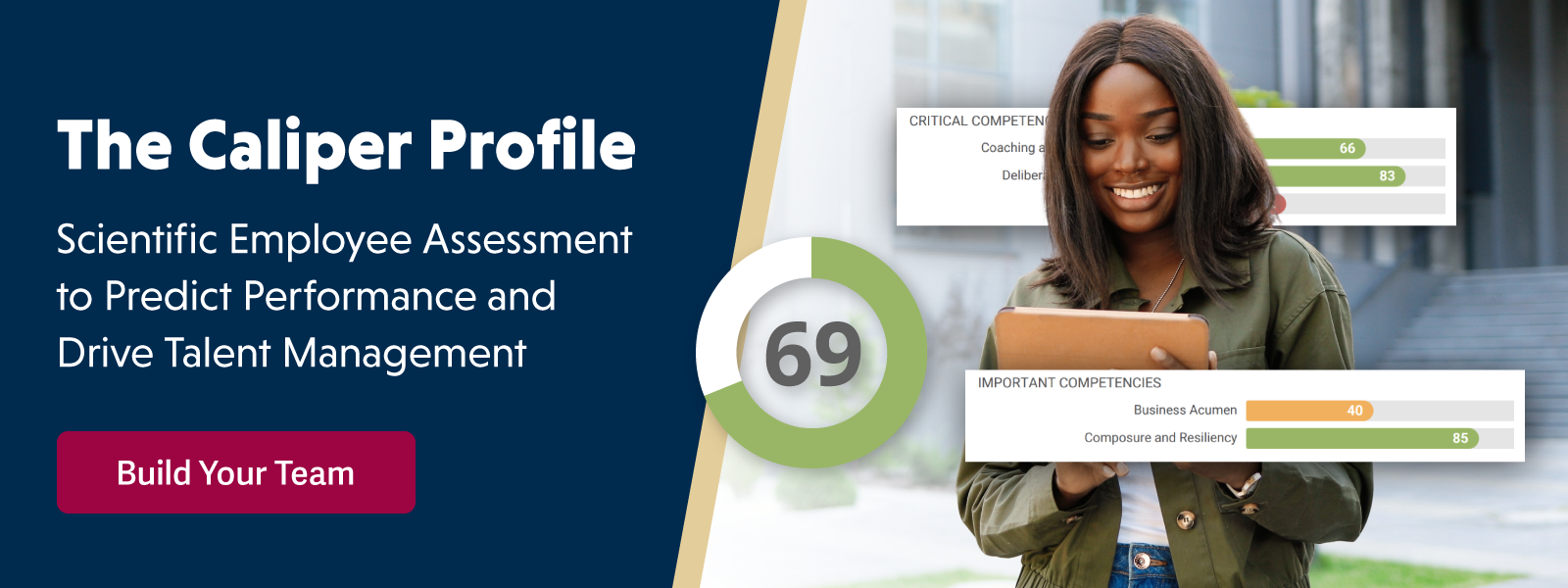No one is born with self-awareness. It is a skill that needs to be learned, refined, and strengthened over time. To be successful in their role and to advance their skillset and careers professionally, employees need to actively work to improve their self-awareness. Doing so benefits both the employer and the employees, as your workforce will be more in-tune with their needs, more empathetic towards others, and more prepared in the case of future disruption. In order to create a culture that truly embraces and encourages self-awareness, you’ll need to have a clear understanding of the varying levels, types, and approaches to becoming self-aware.
What is Self-Awareness?
A popular New York Times Bestselling Author, Mark Manson, describes self-awareness as our ability to ground ourselves in reality. With the ability to manage our thoughts, impulses, and feelings, self-awareness in the workplace helps with not only interpersonal interactions and relationships but also self-governance and accountability. With so many organizations continuing to work remotely or in a hybrid capacity, the ability to manage one’s own emotions and workload are crucial for success.
When you break down self-awareness, it is all about creating a healthy and productive state of mind for you to focus your thoughts and attention. Highly self-aware individuals are able to turn their focus and critiques to themselves, observing their current emotional and mental state. People who are truly self-aware separate their decision-making from their emotions; they control and manage their thoughts, rather than having their thoughts and emotions control them.
Did you know? Only 10-15% of people are self-aware. Although, the percentage of those who think they are self-aware is much higher.
The Appeal For Being Self-Aware
In the workplace, self-awareness is something all employees should strive for. Enabling individuals to have control over their own actions and emotions, a highly self-aware employee is one that takes challenges in stride and reacts in a calm, professional manner. This is a critical aspect when it comes to our current state of business, as many industries and companies continue to face unusually prolonged disruptions.
@CaliperCorp says that there are two main types of #selfawareness, both crucial for your individual #growth. Read up on the differences and how you can refine your skills here: Share on XThere are many benefits to having the ability to regulate and control your emotions. Self-aware individuals can reframe situations and view them positively rather than negatively. It’s important to remember that often, we cannot control external factors in our lives. But, we need to be able to control the way we react to the situations that arise.
Additionally, self-aware people are able to recognize and identify underlying issues in their mental and work processes. Individuals with a high level of self-awareness are always striving to improve their work. They seek out hurdles in their processes and work to improve and correct any potential issues. These corrective measures will help your team become more self-sufficient, productive, and engaged with their team and work.
Did you know? People with high levels of self-awareness are 32% happier compared to those who do not.
The Two Types Of Self-Awareness
When it comes to self-awareness, there are two different categories that you need to be mindful of. Understanding the differences between these categories will help you to identify which aspect you need to develop further. Each individual is unique in their self-awareness journey, so highlighting your strengths and trouble areas will help you advance in your growth.
Public self-awareness is the first of the two categories. This type of self-awareness is centered around controlling your outward appearance and managing the way others perceive you. Often, this form of self-awareness involves regulating your actions and emotions to stick within societal norms or the “status-quo.” Take a moment and imagine you’re speaking at an event in front of a large group of people. How do you feel standing up in front of the crowd? What actions do you take to manage your emotions and reactions to this event? The way you handle and present yourself externally is tied to your public self-awareness skill set.
The other form of self-awareness is the kind that is private and internal. How you perceive yourself and regulate your emotions can be just as important as managing others’ expectations and perceptions of you. At its core, private self-awareness deals with the ability to understand yourself. Often, people will find that they are more well-suited for one form of self-awareness than the other. By identifying which aspects you excel in, you can further refine your plan for growth.
The Levels Of Being Self-Aware
Self-awareness is more than just understanding your surroundings. There are varying levels of awareness, each of which can help you to understand your current state better. Below we break down these levels so that you can better visualize the process.
What are you doing? This is the initial level of self-awareness and is also the most basic. This level encompasses understanding your current situation and actions in your vicinity. On any given day, there are sure to be distractions and challenges you need to overcome. Understanding what they are can help you to focus on the tasks at hand.
What are you feeling? The next level of self-awareness deals more with your emotions and reactions to things around you. After you’ve determined what you are focused on, center your thoughts around how you feel about what you are doing and experiencing.
Where are your blindspots? The final level of self-awareness requires a strong skill for reflection. This level asks you to take a deep look at yourself and your situation and recognize areas that you are lacking. Everyone has blind spots and weak points, but the key is identifying these points and reframing them into a growth mindset. Think of this level as your chance to overcome your weaknesses and turn them into strengths.

Climbing the levels of self-awareness is very beneficial for everyone. It allows individuals to concentrate on what’s important, analyze their feelings towards it, and figure out what they might not be able to see at first glance.
Why Is Self-Awareness Important At Work?
Your workplace should strive to hire and develop self-aware individuals. When your workforce excels at identifying, managing, and productively expressing their thoughts and emotions, you’ll see significant improvements in your business functions. Some benefits of encouraging employees to become self-aware include:
- Handle Conflict Productively: In life, things happen! How you react to these changes and turbulence is critical. Staying positive and professional in the face of adversity is crucial for keeping your organization running smoothly.
- Deeper Understanding Of Your Emotions: The journey towards self-awareness helps you to better identify and manage your emotions. In the workplace, this is crucial, as it can impact your ability to communicate with others and collaborate productively.
- Boost Your Self-Esteem: Self-awareness can actually boost your self-esteem. As you move through the levels of self-awareness, you’ll likely feel more accomplished and confident. Employees with better self-esteem are more likely to perform well within their roles.
- Increase Empathy And Inclusivity: Self-aware employees have an easier time empathizing with people from different backgrounds. In the workplace, this leads to higher levels of inclusivity and diversity in thinking.
- Stronger Decision Making: In a business setting, decisions are constantly being made. Self-awareness is a valuable tool, as it helps you regulate your thoughts and emotions to make clear, strong decisions.
Practicing Self-Awareness
Self-awareness is a skill that takes time, energy, and practice to excel at. By practicing techniques and consciously working to improve, you can grow your skillset and become an example for others. Some tips for practicing self-awareness include:
- Practice Mindfulness: Each day, spend some time connecting with yourself and self-reflecting. What occurred throughout the day? How did this make you feel? What could you have done better? Create the space and time to ask yourself these questions before ending your day.
- Writing It Out: Journaling can be a positive outlet for many individuals. It allows you to process your thoughts and emotions by writing them down. This is a great way to get out your frustrations, feelings, or irritations in a healthy and productive way.
- Check Your Communication: Communication is much more than just speaking to someone. It is important for you to practice picking up on both verbal and nonverbal cues. Look at peoples’ body language. What is their stance? How about their facial expressions? Nonverbal communication can often be more telling than verbal cues. At the end of the day, you need to ensure you are creating a safe space where people feel comfortable expressing their thoughts and emotions.
- Walk A Mile In Someone Else’s Shoes: Sometimes, we forget to take a step back and look at situations from an outside perspective. This can create a tunneled view of our situations. Combat this by challenging yourself to view things from the vantage point of another person. You can do this by asking for feedback from those around you or taking the time to put yourself in others’ shoes.
- Question Everything: You should ask “why” to everything. Be as curious as you can and soak up the knowledge of others. This is an opportunity for you to grow as a person and move towards being more self-aware.
Be patient with yourself, and remember that gaining self-awareness takes time and energy to achieve. With continuous practice, you can build up your skills and become more self-aware of your surroundings, emotions, and personal strengths.
As previously mentioned, no one is born being exceptionally self-aware. It is a skill, and just like any other skill, it needs to be refined and strengthened over time. Employers would benefit from offering support and tools for developing their employees’ self-awareness. Not only will their teams become more attuned to their needs, but they will also find themselves better equipped to handle disruptions down the road.
Self-awareness is a key element in your individual development process. With access to the right resources and tools, you can grow yourself personally and professionally. To see more about how you can better yourself through self-exploration and growth, take a look at our Individual Development Guide. Our team of experts is standing by, ready to help you take your development to the next level!


